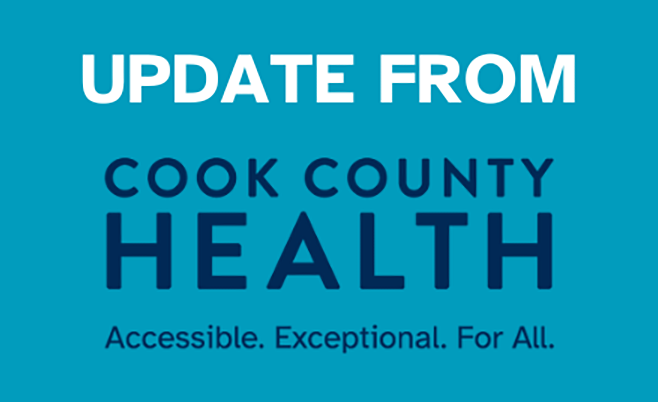Cook County Health (CCH) is holding a two-day workshop with key agencies involved in the criminal justice system to develop a detailed map of where the gaps are in providing behavioral health services in Cook County.
The ultimate goal is to identify potential opportunities for redirecting people with behavioral health issues to proper treatment, so that the unnecessary use of jails and prisons can be reduced. Behavioral health and criminal justice systems often collide, creating significant barriers to treatment and support services.
Studies have shown that 6.4 percent of men and 12.2 percent of women entering U.S. jails have a severe and persistent mental illness, compared to less than 2 percent of the general population. Of these individuals, 72 percent have a co-occurring substance use disorder.
Creating what’s known as a “sequential intercept mapping,” or SIM, helps identify gaps in behavioral health services and then ultimately, allow communities to come up with an action plan to close those gaps. Such a map focuses on five so-called “intercepts,” like when law enforcement is called to respond in cases where mental health or substance abuse might be a factor.
CCH will join representatives from the Circuit Court of Cook County, Cook County’s Justice Advisory Council and other agencies on March 23 and March 24 to create a SIM for Cook County. The two-day workshop will be facilitated by Policy Research Associates, Inc. (PRA) in Delmar, New York, which helped states and communities around the country create similar maps.
“This workshop is a strategic planning session intended to foster systemic change and provide each participating community with the tools necessary to move forward to enhance services for adults with mental illness and co-occurring substance use disorders in contact with the justice system,” said Dr. Henry J. Steadman, President of PRA.
Cook County Health and the Circuit Court of Cook County ware awarded funding from the Department of Justice, Bureau of Justice Assistance, to support the Cook County Justice and Mental Health Collaborative. The Collaborative will utilize the mapping process to help inform future strategy implementation in Cook County.
CCH has shown continued commitment to expand access to quality mental health services throughout Cook County.
Earlier this year, CCH opened its Community Triage Center (CTC), providing evaluation, crisis stabilization and treatment for patients presenting with psychiatric and/or substance-related crises. The CTC is open 24 hours a day, 7 days a week and is located in the same building as the Roseland Neighborhood Health Center.
CCH was also awarded a $4 million, 4-year grant from SAMHSA in January to fund a new Assisted Outpatient Treatment program that will support individuals with severe mental illness in Cook County. The program will enhance and coordinate services available to patients from a number of local and state partners.
And as previously announced, the health system plans to offer behavioral health treatment in its community health centers, expand addiction medicine service and naloxone distribution, and establish a consortium of behavioral health care providers to serve more than 140,000 members of CountyCare, CCH’ Medicaid managed care health plan.

